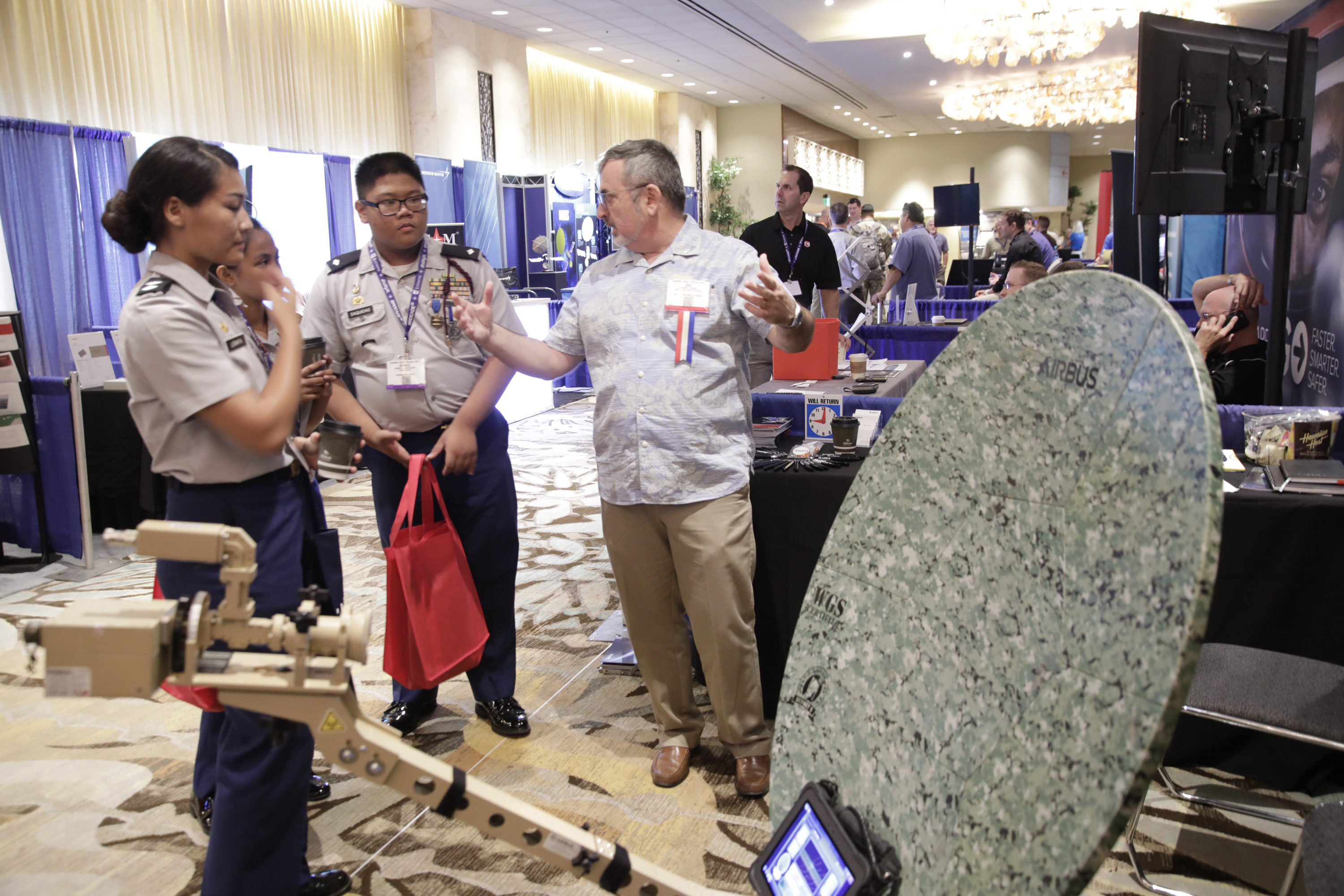About TechNet Indo-Pacific
 Considered by many a natural region that stretches from the African east coast to the U.S. west coast, the Indo-Pacific area has undergone a strategic shift that requires reliable connectivity between the Indian and Pacific oceans. Today’s reality is that the historic and contemporary nations in South Asia, specifically India, play a major role in shaping present and future discourses.
Considered by many a natural region that stretches from the African east coast to the U.S. west coast, the Indo-Pacific area has undergone a strategic shift that requires reliable connectivity between the Indian and Pacific oceans. Today’s reality is that the historic and contemporary nations in South Asia, specifically India, play a major role in shaping present and future discourses.
Keying off this shift, AFCEA International and AFCEA Hawaii have re-named their signature event in the region TechNet Indo-Pacific. By far the largest event focusing on regional defense issues, the conference will reflect the expanded broader Asia view with participation from throughout the area, discussing defense policies and challenges and their relevance to both industry and government through this new lens.
TechNet Indo-Pacific Frequently Asked Questions
Registration and Program Questions
Virtual Platform
Exhibit & Sponsor Information
Networking Tips for the Virtual Conference
Opt in: Maximize engagement by checking both boxes in your profile to “opt in” to make your profile visible and enable the private chat feature. Your contact information will still be private. Clicking “Share Business Card” allows you to exchange contact information for follow-up.
Update your Profile: Once you're logged in, click on "Edit Profile" at the top, left of the screen. You'll be able to add credentials, job title, organization name, contact details, and most importantly - a picture - to put a face to your name!
Chat Away: Whether you are in a session or a booth, you can engage in the public discussion in the window on the right hand side of the screen. Say hello, introduce yourself, and chat about content. To have a private discussion, simply click on any attendee’s blue chat bubble to launch a private chat!
Connect: Visit the "Attendee Search" tab to see what colleagues of yours may be participating. Use the “Search” box to filter search results to identify potential new connections. Be sure to opt in so you can let your peers know you are participating!
Ask Questions: While participating in live sessions, ask questions! Speakers have been invited to participate as their schedules permit to engage in the public discussion window to engage in the conversation and answer your questions.
Keep the Conversation Going: Share your virtual business card to facilitate follow-up outside the platform and to keep conversations going! We'll keep the virtual platform open for approximately three months after the virtual conference closes.
Check out the Social Wall: Use #AFCEATechNet and share pictures to "see" colleagues. While we aren't together, we can still "show ourselves" to facilitate a sense of community. We're so glad you're here!.
Prepare to be Aware
Conferences present opportunities for America's adversaries to target U.S. government employees, academia, defense industry and other personnel to collect our critical information. Be a hard target! Use good OPSEC practices to protect yourself and your organization's mission.
Recommendations:
- Be aware of your surroundings when discussing sensitive unclassified critical information during the conference and after hours, in common/public areas (e.g. social gatherings, networking mixers, etc.).
- Be suspicious of strangers. Even though they sound like they belong at the conference, don't assume they are there for the same purpose as you.
- Use caution when sharing information with someone you don't know. Ask others to confirm a person's identity before sharing critical information about your organization's past, ongoing or future operations/activities/events. Protect your personal information, such as your room number and daily schedule. Don't give out your business cards freely, particularly when outside the United States. Remember, phishing is still the #1 adversary threat vector into your personal and government computers/devices/networks.
- If you use a laptop or other portable electronic device (personal or government-owned), use it cautiously. Disable the Bluetooth and WLAN/Wi-Fi connections when not in use, and if you use this type of connectivity, understand that you may expose personal and work-related critical information to an adversary. Be especially cautious when using unencrypted/unsecure WLAN/Wi-Fi hotspots.
BE SMART! BE SAFE! PRACTICE GOOD OPSEC!